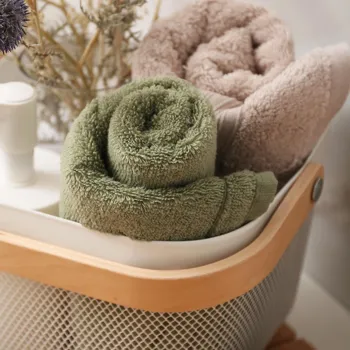Unveil the 7 Key Insights for a Happier You through Regular Mental Health Check-ins. Dive in for a balanced lifestyle!
In the hustle-bustle of our daily lives, it's easy to overlook something as crucial
as our mental well-being. We often focus on physical health, scheduling regular doctor visits and exercise routines, but neglect the equally important aspect of our mental state.

Just like a car needs regular servicing to run smoothly, our minds require consistent attention and care. Regular mental health check-ins are like those service appointments for your mind – they help identify potential issues early on and ensure you're operating at your best.
Ignoring your mental health can lead to burnout, increased stress, and a diminished quality of life. Taking proactive steps to understand and address your mental state is essential for a happier, healthier, and more fulfilling life.
This article offers seven key insights into the benefits of regular mental health check-ins, helping you prioritize your well-being and cultivate a more balanced lifestyle.
Early Detection of Potential Issues
Think of mental health check-ins as a proactive screening process. Just as a doctor screens for physical ailments, these check-ins help you identify early warning signs of potential mental health challenges such as anxiety, depression, or chronic stress.

Recognizing these signs early allows you to take timely action, preventing them from escalating into more serious problems. Ignoring subtle changes in your mood, sleep patterns, or energy levels can have long-term consequences.
For instance, persistent feelings of sadness or a sudden loss of interest in activities you once enjoyed could be indicators of depression. Similarly, excessive worry or difficulty concentrating might signal anxiety.
By regularly assessing your mental state, you become more attuned to these subtle shifts, enabling you to seek support and implement coping strategies before they significantly impact your life.
Talking to a trusted friend, family member, or mental health professional can provide valuable insights and guidance. This early intervention can make a significant difference in your overall well-being, preventing minor issues from snowballing into major crises.
Remember, addressing mental health concerns early is akin to nipping a bud early for a healthy plant.
Enhanced Self-Awareness
Regular mental health check-ins foster a deeper understanding of yourself, your emotions, and your thought patterns. They provide an opportunity to reflect on your experiences, identify triggers that affect your mood, and gain insights into your personal strengths and weaknesses.

This increased self-awareness empowers you to make informed decisions about your life and develop healthier coping mechanisms. For instance, you might discover that certain situations or people tend to trigger feelings of anxiety or anger.
By recognizing these patterns, you can take steps to avoid or manage these triggers more effectively.
You might also identify activities or practices that promote positive emotions and mental well-being, such as spending time in nature, practicing mindful meditation, or engaging in creative pursuits.
Understanding your strengths and weaknesses allows you to leverage your abilities and address areas where you need support. This journey of self-discovery is essential for personal growth and overall well-being.
Improved Stress Management
In today's fast-paced world, stress is an unavoidable part of life. However, chronic stress can have detrimental effects on both your mental and physical health. Regular mental health check-ins can equip you with the tools and strategies necessary to manage stress effectively.

By assessing your stress levels and identifying the sources of your stress, you can develop personalized coping mechanisms. These might include relaxation techniques such as deep breathing exercises, yoga, or meditation.
It could also involve making lifestyle changes such as setting boundaries, prioritizing tasks, and engaging in activities that promote relaxation and enjoyment. Understanding how stress affects your body and mind is crucial for preventing burnout and maintaining overall well-being.
Regular check-ins allow you to monitor your stress levels, identify potential stressors early on, and implement strategies to mitigate their impact. This proactive approach to stress management can significantly improve your quality of life and prevent long-term health problems.
Remember, managing stress is not about eliminating it altogether but rather about developing healthy and sustainable coping mechanisms.
Stronger Relationships
Your mental health directly impacts your relationships with others. When you're struggling with your mental well-being, it can be difficult to effectively communicate, empathize, and connect with those around you.

Regular mental health check-ins can improve your relationships by making you more aware of your emotional needs and the needs of others. By understanding your own emotional triggers and patterns, you can communicate more effectively and avoid misunderstandings.
You'll also be better equipped to provide support and empathy to your loved ones. Healthy relationships are built on mutual respect, understanding, and communication. By prioritizing your mental health, you're investing in the strength and longevity of your relationships.
When you're feeling emotionally balanced and grounded, you're better able to navigate conflicts, offer support, and build deeper connections with those you care about. This ultimately leads to more fulfilling and supportive relationships.
Increased Productivity and Focus
Believe it or not, your mental state significantly affects your ability to concentrate and be productive. When you're feeling stressed, anxious, or depressed, it can be difficult to focus on tasks, manage your time effectively, and meet deadlines.
Regular mental health check-ins can enhance your productivity and focus by addressing underlying mental health issues that might be hindering your performance.
By managing stress, improving your mood, and enhancing your self-awareness, you'll be better able to concentrate on your work and achieve your goals. Taking breaks, practicing mindfulness, and prioritizing your well-being can all contribute to increased productivity.
When you're mentally healthy, you're more likely to be motivated, focused, and efficient. This not only benefits your professional life but also enhances your overall sense of accomplishment and satisfaction. Remember, investing in your mental well-being is an investment in your success.
Enhanced Overall Well-being
Ultimately, regular mental health check-ins contribute to a greater sense of overall well-being. By taking care of your mental health, you're investing in your overall happiness, health, and quality of life.

You'll be better equipped to handle challenges, enjoy your relationships, and pursue your goals with confidence. Prioritizing your mental health is not selfish; it's an essential part of self-care. It allows you to live a more balanced, fulfilling, and meaningful life.
Remember, your mental health is just as important as your physical health. By making regular check-ins a part of your routine, you're taking a proactive step towards a happier and healthier you. This can include self assessment through questionnaires and journals.
Improved Decision-Making: When your mind is cluttered with stress, anxiety, or negative thoughts, it can become challenging to make clear and rational decisions. Regular mental health check-ins help clear the mental fog, allowing you to think more clearly and make better choices. By identifying the factors impacting your mental state, you can approach decisions from a more grounded and balanced perspective. This leads to more informed and thoughtful choices. This can be improved by meditating and by getting away from constant social interactions.
By proactively prioritising your mental well-being, you build resilience, enhance your relationships, foster greater self-awareness, and unlock your full potential. It's a journey of self-discovery, self-care, and ultimately, a happier, healthier you.














